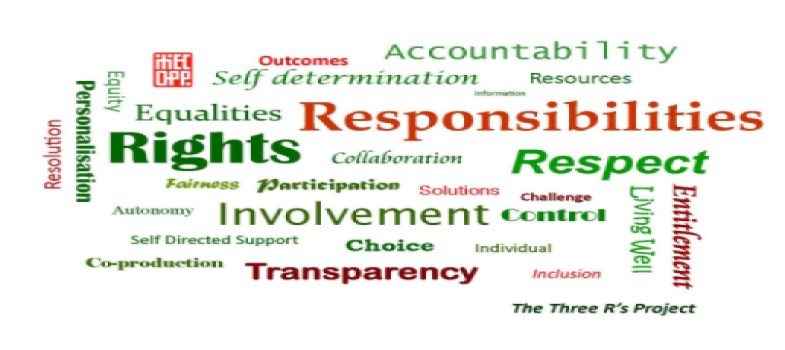Stage by Stage Approach
In this section we look at the stages in more detail.
1. Identify which part of the process you are unhappy with
The process can be looked at in the following stages.
• Assessment
• Support Plan
• Implementation
• Review
It is useful to consider where in the process things have gone wrong. If for example it is the assessment then that may dictate a different approach from that adopted if there is a problem with the implementation of the plan. It will also lead naturally to a consideration of the next stage.
2. Who is responsible for the part of the process you are unhappy with?
• Local Authority
• NHS
• Care provider
Again, by considering the stages of the overall process, you should be able more accurately to define who is responsible and therefore to whom any challenge should be directed. It may also have an impact on the forum for the challenge, for example, complaints about the Care provider may be better directed to the Care Inspectorate.
3. Identify the relevant legal obligations/powers
This stage will help you to formulate your arguments. It will begin to look at the issues of what should have happened and what has not happened.
Duty to carry out assessments
• s12A Social Work (Scotland) Act 1968
• S22 Children (Scotland) Act 1995
• S23 Children (Scotland) Act 1995
• S6 Carers (Scotland) Act 2016
• S12 Carers (Scotland) Act 2016
Duties in relation to provision of information and support
S9 Social Care (Self-directed Support)(Scotland) 2013 Act (2013 Act)
• Explanation of nature and effect of each of the four options
• Information on how to manage support
• Information about persons who can provide assistance and information
• Information about Independent Advocacy
Duty to have regard to key principles
S 1 2013 Act
• Involvement
• Informed Choice
• Collaboration
S2 2013 Act
• Dignity
•
Participation
When we come to consider powers, rather than duties, it can give us a sense of what could be done. Issues here will centre on consideration of whether a decision has been taken to exercise or not exercise a power reasonably
Powers in relation to Direct payments
• Self-directed Support (Direct Payments) (Scotland) Regulations 2014/25
• 2013 Act sections 5(3)(a), 7(3)(a) and 8(3)(a)– ineligibility for direct payments
• 2013 Act Section 12 – right to request a review of decision that ineligible to receive direct payments due to material change of circumstance
• 2013 Act section – 16- power to recover misused direct payments.
Overarching Legislation/ guidance
In addition to the Statutory Principles created by the primary legislation, there are a number of sources of overarching legal principles and guidance which should be considered.
• Statutory Code of Guidance
• Equality Act 2010
• Human Rights Act 1998
4. Identify the appropriate complaints procedure (s)/ legal remedy
There are a variety of options available here but they will not all be available or appropriate in every situation. In most circumstances, the starting point is likely to be the Complaints Procedure and we will look at that as well as the other options in detail in the next module.
• Is there a right of appeal?
• Internal complaints procedure
• Care Inspectorate
• Scottish Public Services Ombudsman
• Alternative dispute resolution
• Equality Act claim in Sheriff court
• Judicial Review
5. Identify any time limits
• Council complaints – 6 months
• NHS – 6 months
• Care Inspectorate – 6 months
• Scottish Public Services Ombudsman – 12 months
• Equality Act claims in Sheriff court – 6 months
• Judicial review – 3 months
6. Identify sources of advice,
assistance and support
• Independent Advocacy
• Citizens Advice Bureau and other advice agencies
• The 3 R’s project
• Solicitor
